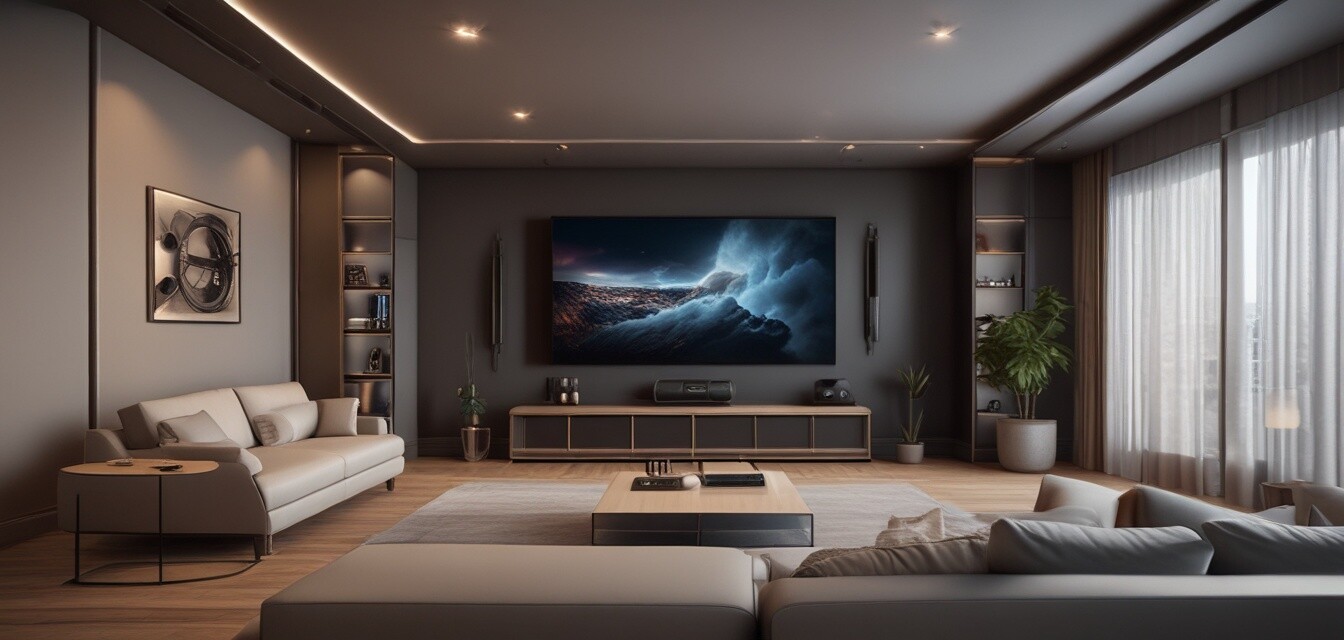
4K vs. 8K: Which Is Right for Your Home Theater?
Key Takeaways
- 4K resolution offers excellent picture quality at a more affordable price.
- 8K provides unmatched clarity and detail but requires substantial investment in equipment and content.
- Your home theater's size and viewing distance can influence the choice between 4K and 8K.
- Current content availability favors 4K, with 8K content still emerging.
- Sound systems and other components are equally important in your overall experience.
As home theater enthusiasts, we always seek to enhance our audiovisual experiences. The battle between 4K and 8K resolutions has become increasingly relevant as technology continues to advance. But whether you're upgrading or setting up a new system, deciding between 4K and 8K can be a tough choice.
Understanding 4K and 8K Resolutions
To make an informed decision, it is essential to understand the differences between these two resolutions.
| Resolution | Pixels | Aspect Ratio | Average Price Range |
|---|---|---|---|
| 4K | 3840 x 2160 | 16:9 | $500 - $3,000 |
| 8K | 7680 x 4320 | 16:9 | $3,500 - $15,000 |
Pros and Cons of 4K and 8K
Pros of 4K
- Widely available content and streaming services.
- More affordable TVs and projectors.
- Great detail and color representation.
- Less demanding on bandwidth for streaming.
Cons of 4K
- While great, it might not be as future-proof as 8K.
- Limited immersive experience compared to upcoming technologies.
Pros of 8K
- Unparalleled clarity and detail for large screens.
- Future-proofing your home theater setup.
- Better performance in upscaling lower-resolution content.
Cons of 8K
- Higher price point for both content and devices.
- Limited availability of native 8K content.
- Requires significant bandwidth and processing power.
Is 4K Enough for Your Home Theater?
For most viewers, 4K offers an impressive viewing experience with rich detail and vibrant colors. High-definition movies, sports, and other entertainment are readily available in 4K across multiple platforms.
If you're not planning to watch very large screens or sit incredibly close, 4K may be more than sufficient. For more insights on setting up a home theater system, check out our setup tips section.
When Should You Consider 8K?
If you’re passionate about technology and desire the latest and greatest, then 8K might be enticing. It’s particularly beneficial for larger screens (75 inches and above) or if you sit close to the screen, allowing you to savor that extra pixel density.
While 8K content is still being developed, some streaming services and gaming platforms are beginning to offer it. To keep tabs on emerging trends in home theater technology, visit our news and trends category.
Choosing the Right Equipment
Your home theater's audio system, display technology, and connectivity options play crucial roles in your overall experience. Whether you decide on 4K or 8K, ensure all components such as speakers, receivers, and cables are high-quality to complement your resolution choice.
What to Consider Before Making the Decision
- Screen size: Is your current setup capable of revealing the benefits of 8K?
- Viewing distance: How far do you sit from the screen? Closer seats may justify 8K.
- Content availability: Is there enough 8K content to justify the investment?
- Budget: What can you afford, and how does this affect your decision?
Conclusion
Ultimately, whether to opt for 4K or 8K will depend on your specific needs, preferences, and budget. 4K provides a robust and affordable experience for most, while 8K is appealing for those future-proofing their home theaters with the latest technology.
Beginner Tips
- Test both types of displays in-store to gauge differences.
- Consider your room's lighting and setup for optimal performance.
- Don't overlook cable quality and accessories for improved video and audio quality.
- Regularly check for content updates on your streaming services.
Your home theater should ultimately reflect your unique tastes and enjoyment. Whether you lean towards 4K for affordability and availability or 8K for cutting-edge technology, being informed is a step towards a superior audio-visual experience.

